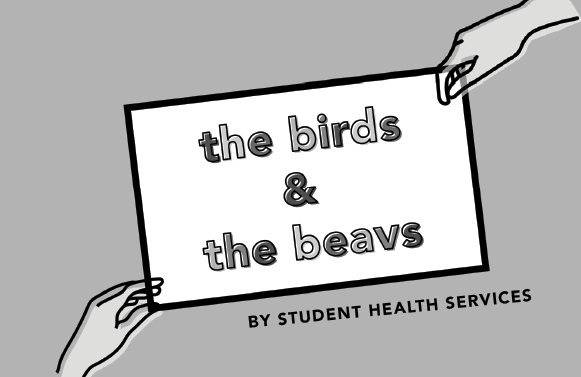SHS Discusses Sexual Health After College
June 10, 2019
The Birds and the Beavs is a weekly column answering your questions on the topics of sexual health, consent, and relationships, written by the Oregon State University Sexual Health Team.
Congrats to the Class of 2019! Enjoy your graduation– we are so proud of you and your accomplishments. Here is wishing you all the success and happiness the world has to offer. For this week’s column, we will be discussing sexual health after college. Even if you are not graduating this year, these are some important things to think about for the summer too!
1.Safer Sex Spots. Feel free to stock up on barriers at our many Safer Sex Spots locations. Safer Sex Spots are located at all Student Health Services locations including Dixon Recreation and Tebeau Hall. You can also find Safer Sex Spots at the Cultural Centers around campus.
2.Purchasing condoms. Even after graduation, it is still important to practice safe sex when trying to prevent pregnancy, especially STIs! You can purchase condoms at practically any store including your local pharmacy. If buying in bulk remember to be mindful of expiration dates and keep your condoms at room temperature. This means not leaving your condoms in your wallet or car. If you are nervous about going to a store, you can even order condoms online!
3.Sexual Health Exams. Don’t forget to schedule and keep up with yearly physicals and sexual wellness exams. Your sexual health is just as important as your physical health, even if you are not currently sexually active or do not plan on having sex.
4.Hormonal Contraceptives. It’s not too late to sign up for CCARE. It is a federal program that can be used anywhere, but needs to be renewed yearly. If you already have CCARE and already are on a birth control, you can get another prescription or get any long acting reversible contraceptive (eg. IUD, implant, etc.) replaced even if you have a year or two left on it. This means if you are into year 2 or 3 for the implant you can get it replaced so you don’t have to worry about paying for a replacement a year from now!
5.Consent. Consent is still an important part of any relationship– this goes beyond college. Remember, consent is freely and actively given, reversible, informed, mutually understandable, and ongoing. This is in all relationships, not exclusively seuxal ones.
6.Healthy Relationships.Sexual health doesn’t just refer to your physical health, it also refers to your emotional and mental wellbeing. Fostering healthy relationships, as well as getting consent, are important parts of your sexual health. Building positive relationships lays the foundation for communication and trust, which are essential in any sexual relationship.
7.Resources. Knowing where to find resources are important. BedSider.org, Planned Parenthood, CDC (Centers for Disease Control & Prevention), and Mayo Clinic are great online resources. Your local health care provider is a great resource and will know of resources relevant to your locale. Also, we are still here! Feel free to email us anytime at [email protected] for any of your sexual health questions.






















































































































